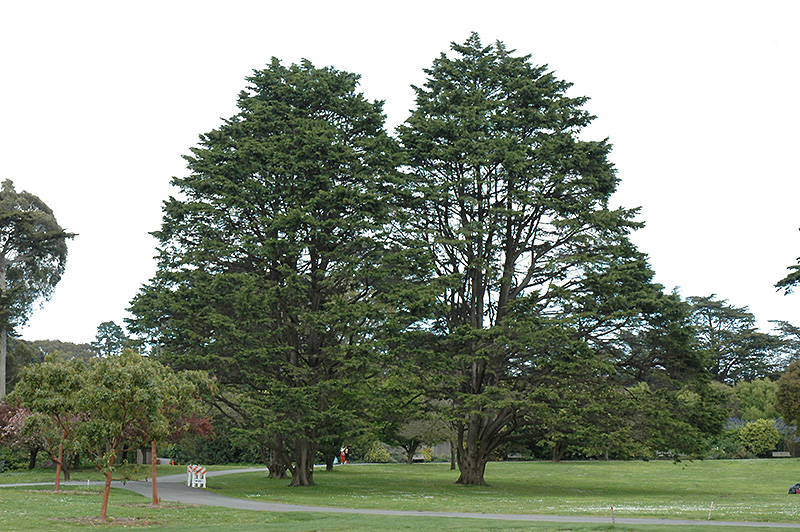Find Plants
Height: 35 feet
Spread: 30 feet
Sunlight:
![]()
Hardiness Zone: 7
Other Names: Macrocarpa Cypress
Description:
An upward spreading variety that will tend to become more flat topped with age; native to the coast, it is tolerant of wind and salt spray; this variety has the potential to grow to huge proportions in ideal conditions, but can be maintained by pruning
Ornamental Features
Monterey Cypress is primarily valued in the landscape for its ornamental upright and spreading habit of growth. It has attractive light green evergreen foliage. The scale-like sprays of foliage are highly ornamental and remain light green throughout the winter.
Landscape Attributes
Monterey Cypress is a dense evergreen tree with an upright spreading habit of growth. It lends an extremely fine and delicate texture to the landscape composition which can make it a great accent feature on this basis alone.
This is a relatively low maintenance tree, and should not require much pruning, except when necessary, such as to remove dieback. Deer don't particularly care for this plant and will usually leave it alone in favor of tastier treats. It has no significant negative characteristics.
Monterey Cypress is recommended for the following landscape applications;
- Accent
- Vertical Accent
Planting & Growing
Monterey Cypress will grow to be about 35 feet tall at maturity, with a spread of 30 feet. It has a low canopy with a typical clearance of 3 feet from the ground, and should not be planted underneath power lines. It grows at a medium rate, and under ideal conditions can be expected to live for 60 years or more.
This tree should only be grown in full sunlight. It prefers dry to average moisture levels with very well-drained soil, and will often die in standing water. It is considered to be drought-tolerant, and thus makes an ideal choice for xeriscaping or the moisture-conserving landscape. It is not particular as to soil pH, but grows best in poor soils, and is able to handle environmental salt. It is somewhat tolerant of urban pollution. This species is native to parts of North America.
Disclaimer - This Plant Finder tool is an online resource representing many of the varieties that we carry over the course of the season, and is intended for informational purposes only. Inventory varies seasonally, so we cannot guarantee that every plant will be in stock at all times - please contact the store directly for availability. It does not include our entire inventory of plants, so be sure to visit our store to see varieties that may not be represented on this list.

